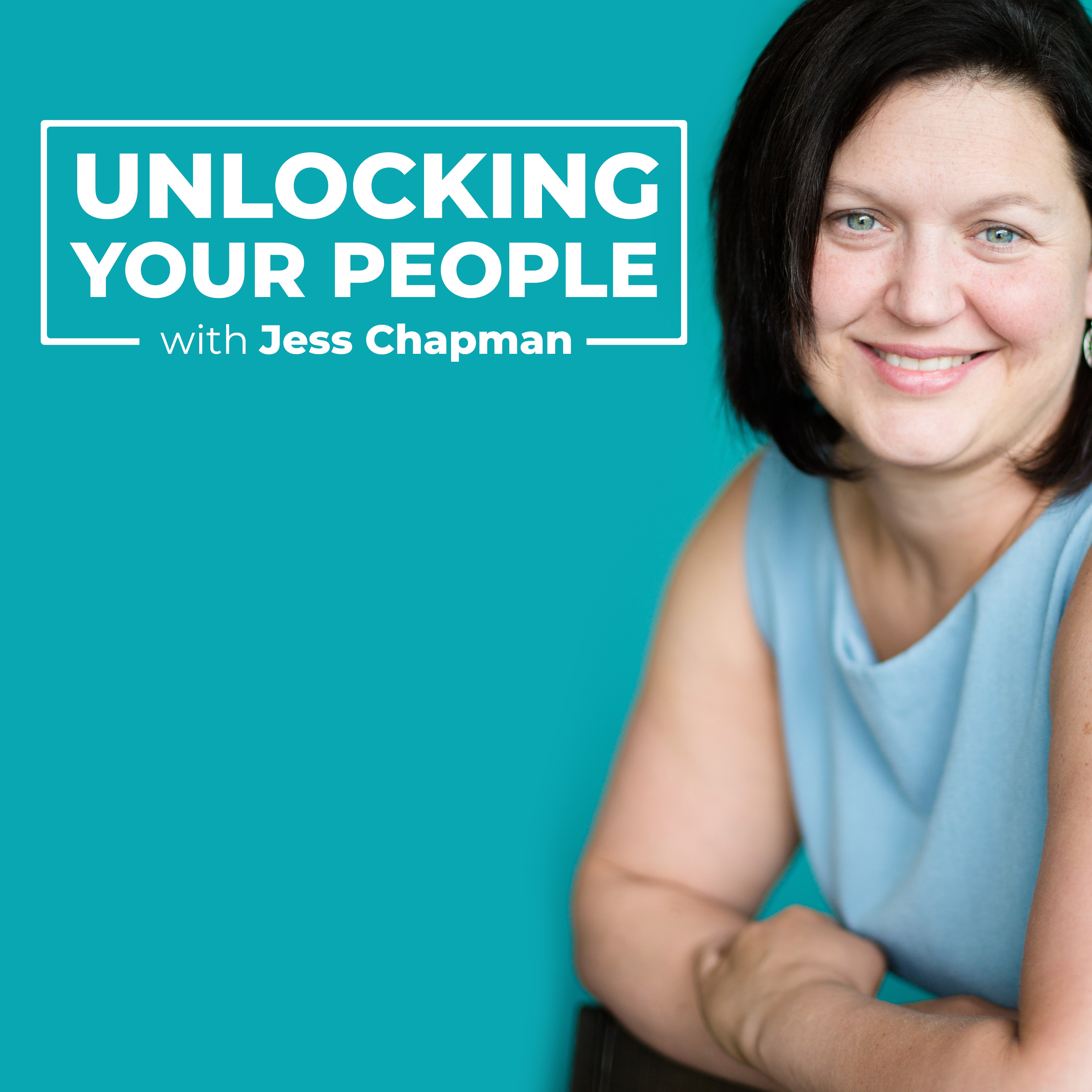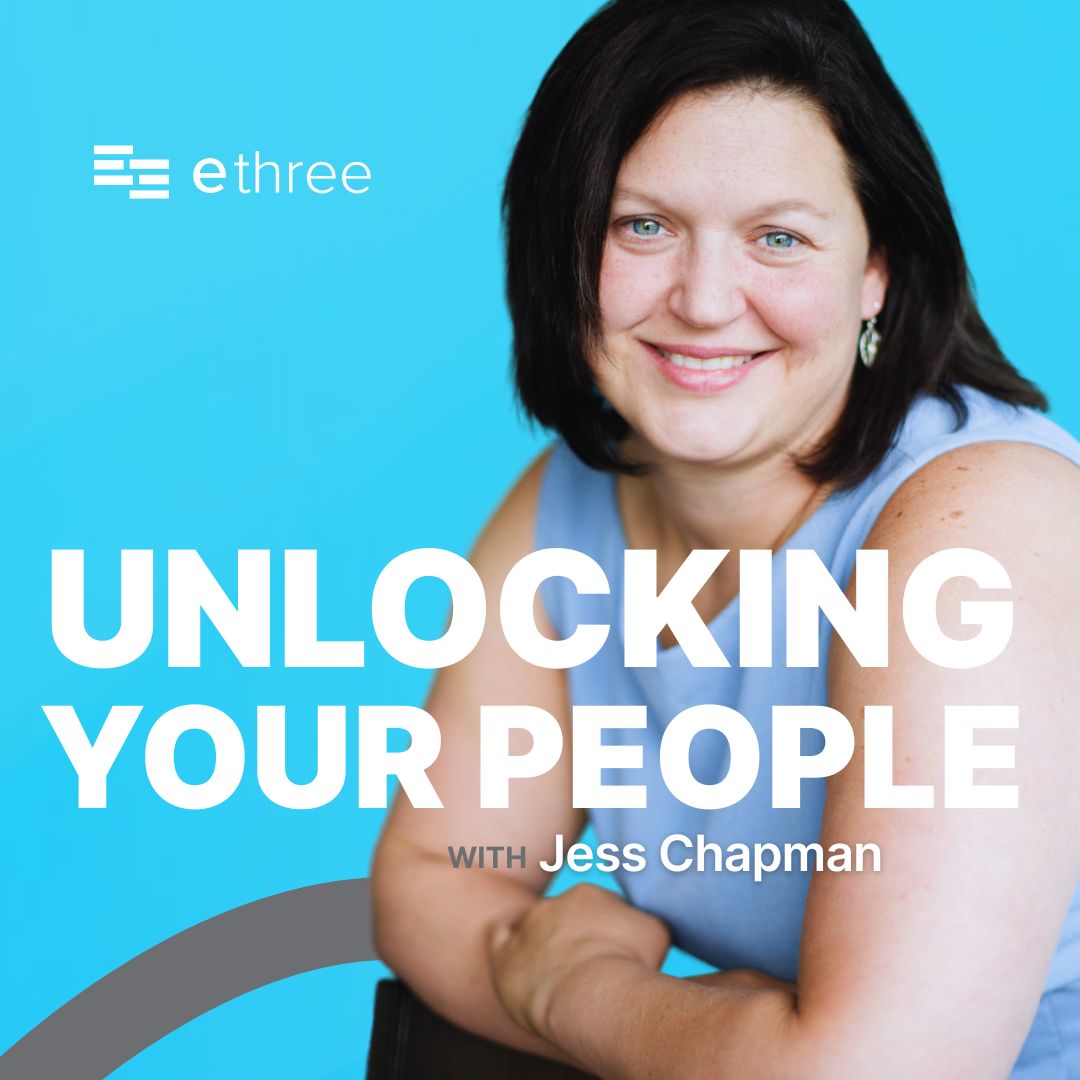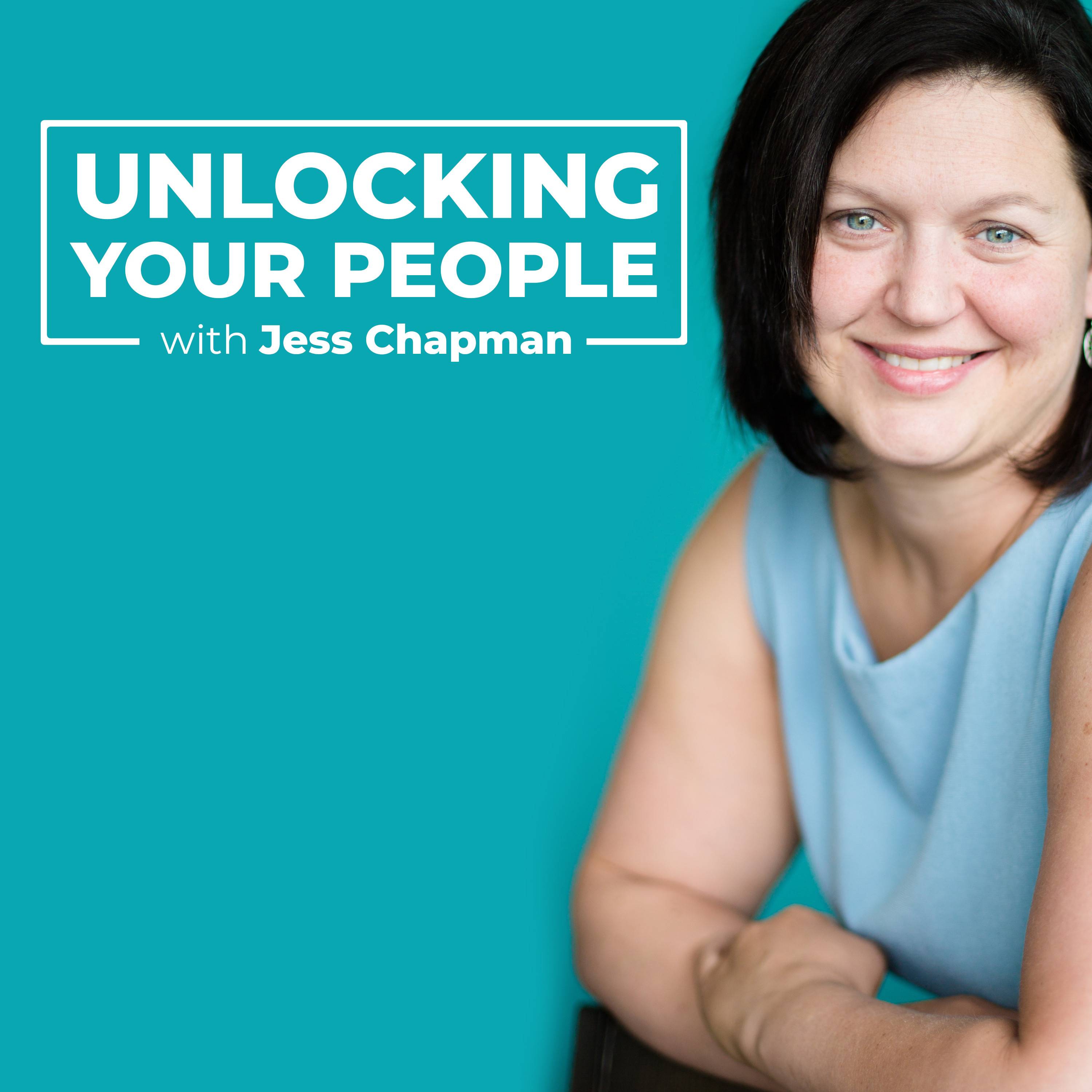Episode Transcript
[00:00:01] Speaker A: So we're here again for another Just asked. Yes, with the lovely Roz, who is going to ask me the question that she has on her mind or one from her bag of tricks. So what is in store for me today, Ros?
[00:00:13] Speaker B: Well, Jess, it's Friday and it's been an exciting week. You know, I had a piece of news come up that I really wanted to get your take on, because I feel like everybody has seen this press conference at this point about Trump and Tylenol, the whole acetaminophen, acetaminophen thing, fiasco.
And there was a real interesting, like, leadership component to this for me. I mean, I want to get your take on this because I felt like the people around him, and this is kind of consistent with Trump's presidency so far, people around him usually don't know what he's going to say until after he said it.
What, what is your take on this whole thing? Did you see that? And what did you think about that?
[00:00:57] Speaker A: Well, parking the ridiculousness of the content for a second. If I stick to more of the leadership angle on some of this and park the politics of it, I think there's two things that stood out to me off the top of my head. One was about the responsibility that we have as leaders. It doesn't really matter what I mean. He is obviously the President of the United States, and so therefore there's grasp huge swathe of people paying attention to what he says. But even if you are a frontline leader in an organization and it's just your team, if you say has power, right? And that's a really important thing to remember, which clearly he knows. It's something that we all need to think about when we're in a leadership role. Right? Look, you have power. What you say, when you say something, it gives it legitimacy. It might be inaccurate, but because you're saying it, you're making it legitimate. And it's really important that particularly more senior you become, the higher profile you are, you think about the impact of your words. And I do know that a lot of Senior leaders and CEOs don't think about that because they just see themselves like a regular person. Right. So when I say it, I'm just giving my opinion like everybody else's. I'm just saying what I think, like everybody else's. But actually, you're not like everybody else. Right. You are in charge of a group of people who are looking to you for direction and guidance, who are looking for you to be the person that tells them, like, the the seed of truth. And so we should, in my opinion, be thinking carefully about what it is that we.
Right. Which leads me on to my second part, which is your entourage and the people that you have around you and whether you actually have people around you who are going to tell you no, tell you it's a bad idea, whether you're willing to listen to them, whether you actually ask for constructive challenge, and whether you create the environment in which the people around you who may be more informed than you in a lot of cases might, particularly if you're talking about things going on in the organization. If you are now elevated to CEO, you're no longer in the. The thicker things.
Are you listening to them saying, don't say that, or that's not a good idea, or that's not accurate, or that's not going to land well, or that's not truthful, or are you assuming you merely know better and going out there and I think making sure that as you grow as a leader and move into different roles, the people that advise and guide you are a diverse group of people with lots of different opinions, firstly, which I'm not sure exists in this instance, and that they're people whose opinion you take seriously. And if they tell you not to do something, you really seriously take that under advisement.
None of which I think necessarily happens in this type of example.
So those are the two things that struck me mostly from a leadership perspective. I mean, we could spend a long time talking about the example that is President Trump, for good and for bad, which way I would lean on most of it.
But you know, that, that, that would be like a week's worth of podcast episodes, Ross. So, you know that. That would be the. Those would be my two snippets.
[00:03:55] Speaker B: That would be amazing. I mean, when you're tapping into this concept of having people around you and who you have around you, I mean, I just wrote down, like, yes men, you know, because a lot of times when we achieve those levels too, of power, you know, the people around you are not going to tell you.
[00:04:13] Speaker A: No.
[00:04:13] Speaker B: They're not going to say, right?
[00:04:16] Speaker A: No. Well, two things will show up. One is similarity bias. So it's really easy in your brain, your brain, when you meet people, your brain automatically sorts people, right? And your brain goes, I am awesome. So if you are like me, you must also be awesome.
And I want to spend time with you. If you're not like me, I don't know about you. I'm going to put you kind of over there and decide. And so it's very easy to opt to spend time with and talk to people who are like you. But actually to get the best, well rounded answer to things, you need to connect with other people.
And we often do an activity where we look at your circle, right, and say, list 10 friends or 10 people that you connect with regularly. Now, how different are they really to you?
Do you have anybody in your circle who's a different gender, different ethnicity, different religion, different political affiliation? Like, go down your list of people that you spend most time with and see how broad a perspective you're actually getting from the people you surround yourself with. Right. So at home might not be a big deal. If you're thinking about work and you want to run an organization effectively, you need breadth of perspective. And then you're quite right. The higher up you go, the less likely are people are going to tell you the honest truth, especially if it's a criticism. Right. So you have to create the environment to be open to feedback. You have to be giving permission to people in the way that you act and respond to say, no, I want to hear those things. And I've lived with organizations, worked with organizations where the culture was, we shouldn't say anything if it's wrong. We need to go to extraordinary lengths to pretend the stuff that's not working isn't as bad as it sounds because the boss isn't going to like it. But you're not doing yourself any favors in those situations at all. Yeah.
As much as it would pay me greatly. You know, I started E3. I love my, I love my company. I think my company's awesome. It would pain me personally if the team rocked up and said this sucks, but I would rather someone told me in the team it sucked, then they hid it and it caused us issues in terms of the results that we generated or the client satisfaction that we had. So you're better off knowing. Yeah, you're better off.
[00:06:20] Speaker B: So true. So true. I have one more question for you around that, which is, you know, one other thing I've noticed a lot with the Trump presidency and just the management that seems to be going on. If you think of a presidency like a business, right. I mean, he's essentially the CEO of the United States.
What it seems to be that I'm hearing a lot of in the news is that there's a lot of like kind of this top down approach to how things are being managed where, you know, you've got things like the cdc, you've got, you know, other organizations within the presidency that are like, like we're not being listened to. Our concerns are not being heard at these executive levels, you know, either by this health secretary or whoever it is that's kind of managing those departments. So I'm just wondering about that in terms of like a business as well, right? With CEOs and top down management. And like you're saying you need to listen to people but you know, I guess, is that a leadership style or how would you relate that?
[00:07:15] Speaker A: I'm not sure where entirely. That I'm not sure where entirely Trump falls into leadership framework land. Honestly, is it a bit unique? In many, many ways, I would say designing strategy and making decisions. Ultimately, unless you have an entirely democratic organization, which is extremely difficult to do, some people have accomplished close to it, but often there needs to be a decision maker.
What you're talking about is what consultation you do, like how you think about decisions in your organization and whether you decide that you are right and you make the decision, whether you consult and get people to input into that decision making.
The challenge sometimes with getting bottom up information is the lens with which people hold on the organization. So if you're asking frontline employees for input into things, they're often not looking at it at the 40,000 foot view. And what matters to them may not be strategically relevant to the organization.
And so there's, you know, examples of like CEOs getting up to do Q&As with the floor and the floor is asking about why we can't change the paper or you know, why the photocopier doesn't work on their floor. Right. Those are not, those are very relevant to the person's day to day, but perhaps not strategically important to the organization.
And so how you ask for input really matters.
But there is still something to be said for the buy in you get from asking for input. If people feel like they have control and influence over shaping their environment, they are more bought into what happens next, even if it wasn't what they told you to do. And so I would always encourage leaders to be thinking about where they get information and input from because that's how you strategically know if what you're doing is a good idea.
But there are lots of times when top down decisions is still very appropriate and the right way to move forward. But if you're CEO and you want people to stay in your workforce and work for you, they need to feel like they have a voice.
[00:09:07] Speaker B: So true. Yeah. And I was just thinking like there's been so many news stories in the last number of weeks about, you know, government employees being fired in the US and all of these things happening kind of out of nowhere. And for a lot of these people, they've put their whole lives into being a public servant and it's part of who they are as an identity. Right?
And so there's kind of that whole piece of it too, where managing a government organization would be even more different than, you know, a private company, because you've got that buy in, that really deep level buy in from the people who work there.
[00:09:43] Speaker A: You know, I mean, in theory, that'll all come down to culture and environment. Like we, we attach to purpose, right? So that is true no matter what type of organization it is. But what you're describing is an attachment to the work that can be stronger in a not for profit or government world where you're doing something for community or social impact, for example, Right? So then you're, you're often very passionate about the purpose of the work in a way that might be different for somebody who's doing things in a corporate environment and they're kind of doing, I don't know, marketing or something of that nature. Now everybody who's in marketing is going to probably troll me for that comment, but you get where I'm going with it.
But then there's still the culture piece, right? And however you cut it, a culture of fear will not serve you in the long term. Like there's not. It might serve you personally, which is what we might be getting at here, right? What's the personal agenda? And is the person at the top doing things for their own aggrandizement and who they are as a person, or are they interested in moving the organization that they are responsible for forwards?
That's, you know, that's one of the challenges of all leadership is why does this person want to lead? Are they here for the good of others or are they here for their own agenda? Gender? So all of that for me is about fit. And style is part of fit, right? Like what is the style of this person? And is that the style of leadership that we want?
Or can this person adjust their style to suit the organization and where it's at today?
We don't play in government world, so I don't have the same lens on government interactions as some of my peers and friends do who are firmly entrenched in that space. So purely looking at it from a leadership lens, you always want to think about what is the leadership we need for this phase of our organizational journey and is this the right person?
The challenge of course, with elections is that everybody gets a vote.
Right. Whereas in corporations, everybody does not get a vote. Right. You do not get to vote.
[00:11:49] Speaker B: It's like designed by committee, right?
[00:11:52] Speaker A: Yeah, yeah.
I mean, I mean, that's what I mean. You can argue the toss on whether the electoral systems are fit for today's age and all that jazz, but at the end of the day, we don't go to the employee base of a corporation and say, like, everybody vote on who you want to be CEO. Like, there's going to be a race where all these people are going to put their names forward to be CEO and the employees are going to vote on, become CEOs. It's a completely different thing. So you can't expect it to work the same way.
And I really don't think we. I don't think we should adopt that in organizations. Just to be clear, I'm not suggesting that that is the right way Forwards for appointing CEOs. No, no.
[00:12:34] Speaker B: Fully democratic CEO.
[00:12:36] Speaker A: Would you give me a new photocopier on my floor? If so, I'm going to vote for you. Right, but that's kind of what that is, right? I care about photocopiers. You'll give me a new photocopier. You get my vote.
[00:12:47] Speaker B: Not.
[00:12:47] Speaker A: Are you actually going to make the difficult decisions that advance for this organization and make sure I have a job for.
[00:12:53] Speaker B: Yes. True.
[00:12:54] Speaker A: Okay.
[00:12:54] Speaker B: Jess, thank you so much. Enlightening as always. Enjoy the rest of your day.
[00:12:58] Speaker A: Thanks.


